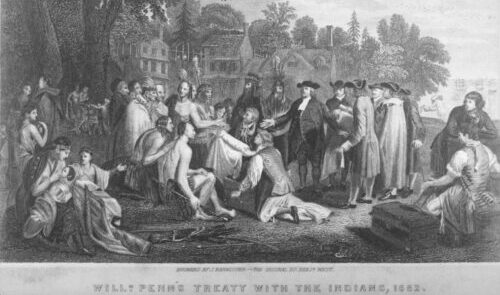
Unfortunately, the distinction between the law and legal is not straightforward nor is it easy to explain. The best summation that I have heard is that the law concerns itself with substance and legal pertains to form. However, this is not quite accurate as we shall see.
Black’s Law Dictionary – Sixth Edition defines the law as: “That which is laid down, ordained, or established. A rule or method according to which phenomena or actions co-exist or follow each other. Law, in its generic sense, is a body of rules of action or conduct prescribed by controlling authority, and having binding legal force…. That which must be obeyed and followed by citizens subject to sanctions or legal consequences is a law.”
So law refers to “a body of rules of action” established by a “controlling authority” and is that “which must be obeyed and followed by citizens”. So let’s take a look at what a citizen is.
Citizen: ““Citizens” are members of a political community who, in their associated capacity, have established or submitted themselves to the dominion of a government for the promotion of their general welfare and the protection of their individual as well as collective rights. Herriott v. City of Seattle, 81 Wash.2d 48, 500 P.2d 101, 109
The above definition, which was so eloquent and powerful that it was included in the broader definition of citizen in Black’s Law Dictionary, shows that citizens are subjects to and parties of a broad contract. The broad contract that I speak of is the encompassing set of rules that a “political community” has “laid down” and “which must be obeyed and followed by citizens”. So the contract is between the citizens and the political community.
If you have read my blog on the Six Elements of a Contract, then you know that there must be consideration on both sides of a contract. The valuable consideration that a citizen receives for joining a political community is “the promotion of their general welfare and the protection of their individual as well as collective rights.” The valuable consideration that a political community receives in return is the ability to lay down and enforce a body of law to govern the citizens encompassed by this contract.
I know it seems that I have digressed quite a bit from the main topic but bear with me as this foundational idea of a contract plays a very important part in how laws and the legality of those laws is interpreted and enforced. Which brings me to the definition of legal as well as the concept of jurisdiction.
Legal: “Conforming to the law; according to law; required or permitted by law; not forbidden or discountenanced by law…lawful. Freeman v. Fowler Packing Co., 135 Kan. 378, 11 P.2d 276, 277
This definition from the Freeman v. Fowler Packing Co. case seems fairly straightforward. An act is legal if it conforms to the law. But laws can be broadly based or very detailed. They can have many exceptions either expressed or implied. Laws can conflict with other existing laws. Laws can contain words or terms that are defined differently than the ordinary understanding or dictionary meaning of those words or terms.
In addition, lawyers and judges are the ones who create and frame the structure of legality around laws in their courts. This is so ingrained in the judicial system that the 4th definition of Legal in Black’s Law Dictionary is: “4. Posited by the courts as the inference or imputation of the law, as a matter of construction, rather than established by actual proof; e.g. legal malice.” Black’s Law Dictionary. 6th ed. St. Paul, Minn.: West Publishing Co., 1990. p. 892.
If that was not enough of a headache regarding legality, there is the issue of jurisdiction.
Jurisdiction: It is the power of the court to decide a matter in controversy and presupposes the existence of a constituted court with control over the subject matter and the parties. Pinner v. Pinner, 33 N.C.App 204, 234 S.E.2d 633
The key element here is that in order for a court to have the ability to decide a matter in controversy, it must have control over the subject matter and the parties. Let’s take a simple example. A child under the guardianship of its parents decides to draw a picture on the living room wall of the home where the child resides. As the child is drawing on the wall, the mother of the child enters the room and witnesses the “crime”. The mother then confers with the father of the child and they decide to punish the child and sentence the child to confinement within the child’s room for the rest of the day and night.
The mother and father essentially created an impromptu court when they deliberated and passed sentence on the child. They had control over the party (the child) being sentenced because there exists a social contract between parent and child that in most situations is respected by the legal authorities. They also had subject matter jurisdiction as the wall was part of their property and as owners can legally protect their property rights.
I am sure that in future blogs I will touch upon additional aspects and nuances of what is “legal” as it is a vast and very complicated subject. But for this introduction, I wanted to just set the stage, present a broad outline and give an indication of where the bodies lie.
